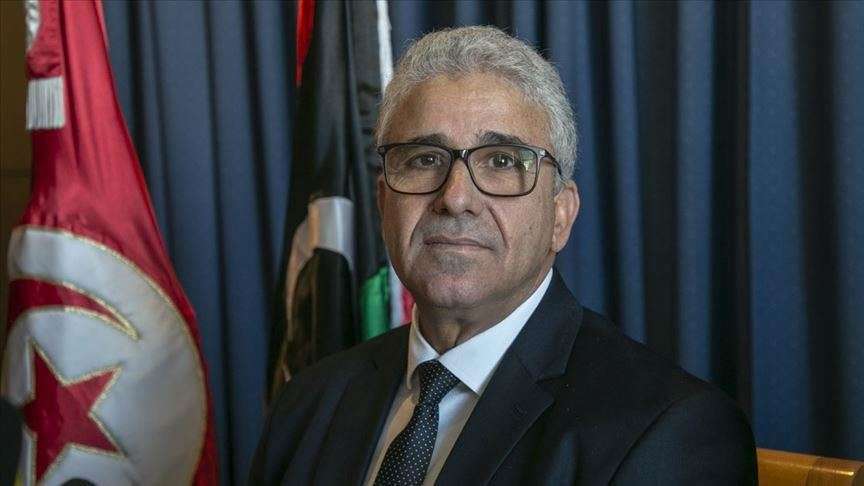Egyptian authorities succeeded to bring 23 Egyptian laborers back from Libya upon directives from President Abdel Fattah El Sisi who called to end their crisis immediately.
Intensive Egyptian-Libyan contacts resulted in releasing the 23 Egyptian laborers who were abused in Libya.
Sisi demanded the concerned authorities to ensure the security of the Egyptian laborers in Libya until they come back home.
Egyptian officials received the laborers at the Salloum crossing returning from Libya. The governor of Matrouh governorate received them too.
The Libyan security forces in Tripoli, Libya, arrested the abusers who were videotaped recently torturing Egyptian workers in Misrata.
The Ministry of Interior of the Government of National Accord (GNA), based in Tripoli, Libya, announced the arrest of a number of militants involved in the abuse of a number of Egyptian workers.
In videos, circulated on social media platforms on Sunday, dozens of Egyptian nationals appeared tortured and abused by militants affiliated to the GNA.
The GNA’s interior ministry arrested those abusers, confirming that they would be referred to the Office of the Public Prosecutor in Tripoli.

The Tripoli Interior Ministry affirmed that the historical relations that bind the Libyan and Egyptian people cannot be undermined by inpidual behaviors that do not represent the Libyan state or the customs and values of the Libyan people, adding in a statement issued late Wednesday that “The political differences between countries cannot in any way affect the relations of love and brotherhood between the Libyan and Egyptian peoples.”
“The Ministry of Interior warned that the GNA would firmly and seriously pursue anyone violates rights and breaches legislation without any discrimination or prejudice,” the statement read.
[caption id="attachment_111409" align="aligncenter" width="864"] Fathi Bashagha[/caption]
Fathi Bashagha[/caption]
Earlier, GNA Interior Minister Fathi Bashagha placated Egypt after the circulation of a video shows Egyptian workers held captives by pro-GNA forces in Misrata.
In exclusive remarks to the Bloomberg, Bashagha said that Egypt can play a role in resolving his country’s crisis.
Bashagha’s statements came after a video circulated on social media showing militants loyal to his forces abusing Egyptian captives and forcing them to praise the GNA’s forces.
The GNA’s interior minister cast doubt on the video’s authenticity, claiming that he will investigate it.
“If the video were authentic, the culprits would be arrested,” he told the Bloomberg.
“These practices are rejected and denounced and have no connections with Libyan morals,” he told Bloomberg News by phone.
Sisi Announces Egyptian Initiative On Libya
Since the fall of Muammar Gaddafi’s regime in 2011, Libya has been in chaos. Since 2015, the two ruling powers have been in conflict – the GNA based in Tripoli (west), and a parallel government supported by the LNA Commander Field Marshal Haftar in the east of the country.
[caption id="attachment_130747" align="aligncenter" width="1024"] Egyptian President Abdel Fattah El Sisi (c), Libyan Parliament Speaker Aguila Saleh (L) and LNA Commander Field Marshal Khalifa Haftar (R)- Press Photo[/caption]
Egyptian President Abdel Fattah El Sisi (c), Libyan Parliament Speaker Aguila Saleh (L) and LNA Commander Field Marshal Khalifa Haftar (R)- Press Photo[/caption]
On June 6, Sisi received Libyan Parliament Speaker Aguila Saleh and Libyan National Army Commander Field Marshal Khalifa Haftar and announced an initiative to end the conflict in the neighbouring country.
Sisi told a news conference that the initiative includes a cease-fire starting Monday and is meant to pave the way for elections in oil-rich Libya. He warned against continuing to look for a military solution to the country’s crisis.
The Cairo Declaration emphasizes the unity, integrity, and independence of the Libyan lands, respecting all international efforts, initiatives, and relevant Security Council resolutions, and accordingly, the commitment of all parties to the ceasefire from June 8, 2020.
The initiative is mainly based on the outcomes of the Berlin Summit, which resulted in a comprehensive political solution that includes clear implementation steps (political, security, and economic tracks) and the respect for human rights and international human rights law.
Each of the three regions (Eastern, Western and Southern) shall form an electoral entity whose members are chosen from the House of Representatives and the State Council representing each region, along with tribal elders and notables, and taking into account an acceptable representation of women, youth, political elites, intellectuals, and unions. Thus, the three committees meet under the auspices of the United Nations and each region chooses its own representative, either by consensus or via election, within a period not exceeding 90 days, according to the initiative.
[gallery jnewsslider="true" ids="132862,132863,132864,132865"]












